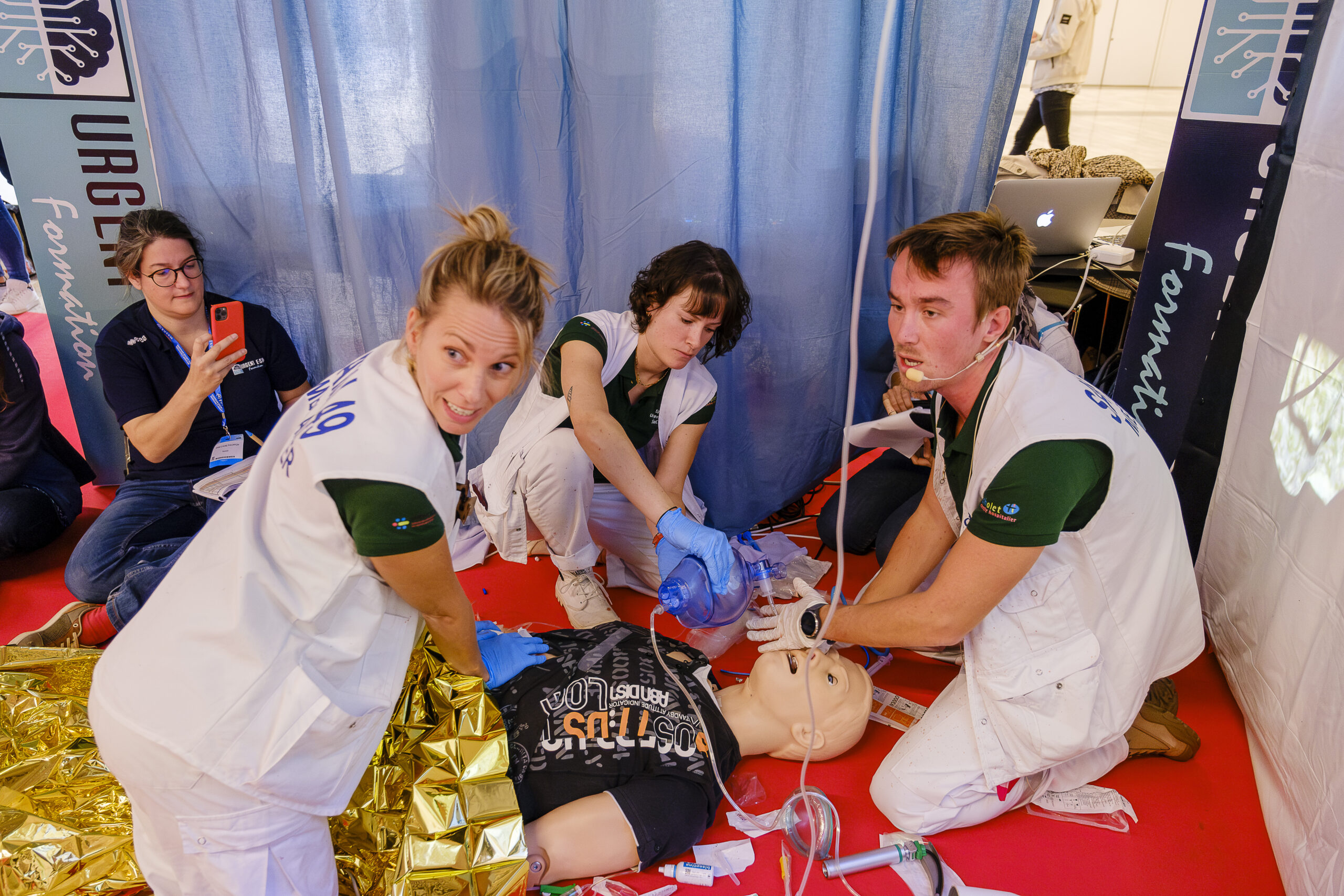
Fighting the Freeze: Survival Strategies for Avalanche and Hypothermia Emergencies with the Austrian Mountain Rescue Service
Format – live
Onsite interactive hands-on live session at VIECON, Vienna: Saturday, 27 September, at 8:00 to 12:00 CEST
This immersive 2-hour workshop offers a hands-on deep dive into the prehospital emergency management of hypothermia and avalanche victims — two of the most critical challenges in mountain rescue. Limited to 20 participants, the course is led by experienced mountain rescue professionals, providing a unique blend of theoretical knowledge and practical skills.
Participants will explore evidence-based approaches to assessing and managing hypothermia in austere mountain environments, including core rewarming strategies, patient handling, and advanced decision-making under extreme conditions. Special focus will be placed on the prehospital treatment of avalanche victims, from rapid triage and extrication techniques to the management of asphyxia, trauma, and cold-induced cardiac arrest.
The interactive format encourages hands-on practice, live demonstrations, and case-based discussions. Real-world scenarios will challenge participants to think critically and apply best practices in high-pressure situations where every second counts.
By the end of the session, attendees will be equipped with essential tools to provide effective, evi
Objectives
- Understand Hypothermia Management
o Recognize the signs, symptoms, and pathophysiology of hypothermia in prehospital alpine settings.
o Apply evidence-based strategies for the prevention, stabilization, and rewarming of hypothermic patients.
o Demonstrate safe and effective patient handling techniques to prevent “afterdrop” and cardiac arrest during rescue and transport. - Master Avalanche Victim Care
o Understand the unique challenges of prehospital care for avalanche victims, including triage, extrication, and injury prioritization.
o Identify and manage the “triple threat” of asphyxia, trauma, and hypothermia in avalanche patients.
o Apply practical techniques for managing airway, breathing, and circulation in extreme cold environments. - Enhance Prehospital Decision-Making
o Develop critical decision-making skills under pressure in remote, alpine settings.
o Prioritize treatment and evacuation decisions using risk-benefit analysis in difficult weather and terrain conditions. - Engage in Hands-on Practice
o Participate in practical, scenario-based exercises that simulate real-world hypothermia and avalanche rescue situations.
o Gain experience with essential rescue equipment and tools used in alpine emergency care.

For who
Emergency physicians, (flight-) paramedics, and medical personnel providing care to patients in alpine terrain.
Educational material
Course materials (recommended to be read prior to the course) include the ERC Special Circumstances Guidelines 2021 and the ICAR MedCom recommendations.
Faculty
Course Director: Maximilian Niederer, AT
- Alexander Egger, AT
Registration
The costs for this course are
€ 200 for physicians
€ 120 for nurses, paramedics, trainees and students
*All prices include 13% VAT
Please register through your MyEUSEM account by clicking on the EUSEM Congress registration button. From the Pre-courses tab you can select the pre-courses you would like to join.
| 8:00-8:10 | Welcome & Introduction |
| 8:10-8:30 | Theoretical Foundations: Hypothermia in Prehospital Care |
| 8.30-8.50 | Practical Scenario 1: Hypothermia Rescue & Patient Handling |
| 8.50 – 9.10 | Theoretical Foundations: Prehospital Care for Avalanche Victims |
| 9.10 – 9.40 | Practical Scenario 2: Avalanche Rescue & Victim Management |
| 9.40 – 9.55 | Case Study & Group Discussion |
| 9.55 – 10.00 | Wrap-Up & Feedback |
| 10.00 – 10.30 | Coffee break |
- The global impact and the importance of NIV in the Emergency Department. Patrick Plaisance
- Why NIPPV works. Non-Invasive Respiratory Support Devices. Paolo Groff
- NIMV in the pre-Hospital Setting. Nicolas Peschansky
- Acute Cardiogenic Pulmonary Edema. Roberto Cosentini
- Pneumonia (non-COVID19) and Pulmonary Contusion. Roberta Marino
- COPD exacerbation. Clinical cases. Rodolfo Ferrari
- COVID19 Pneumonia. Lessons learned from Covid19 Pandemic. Roberto Cosentini